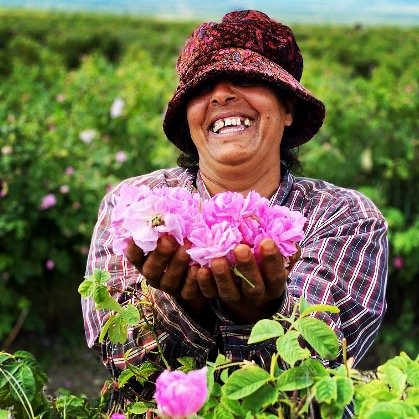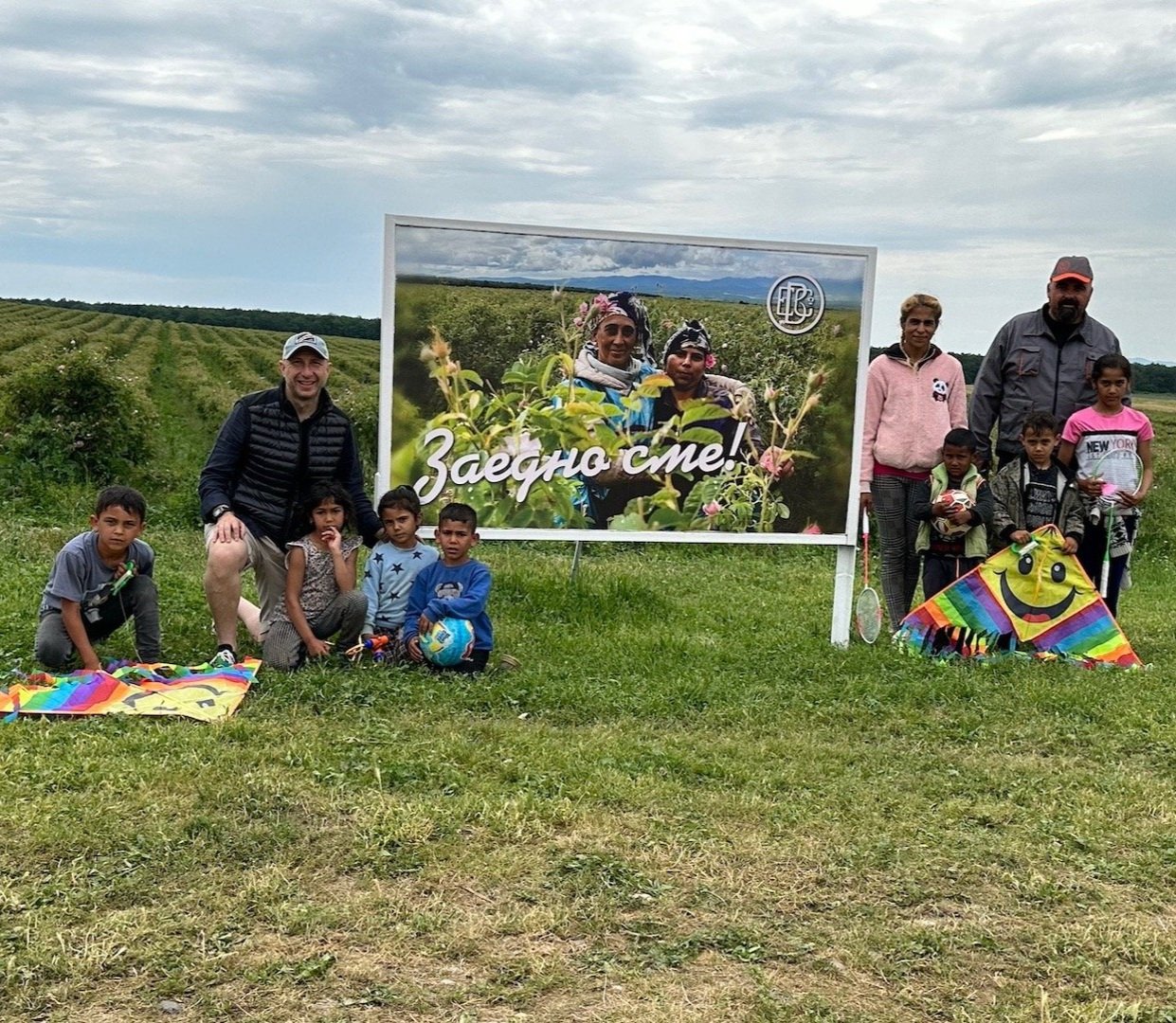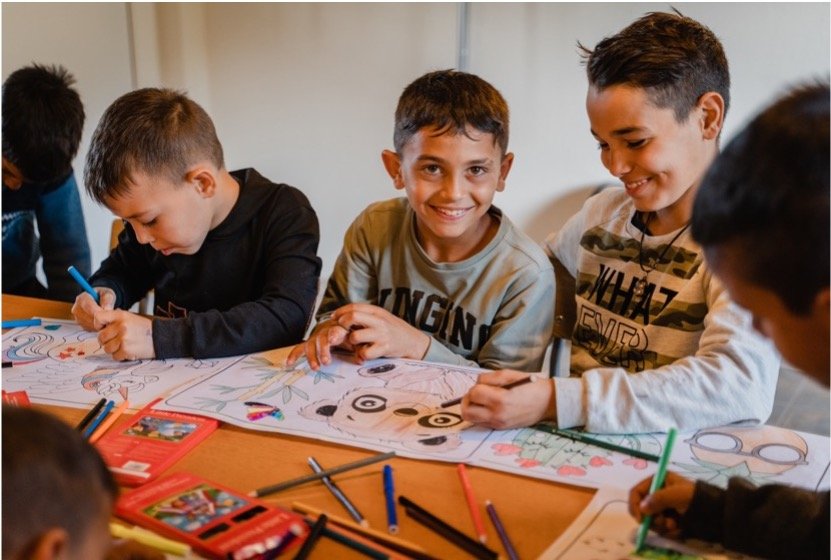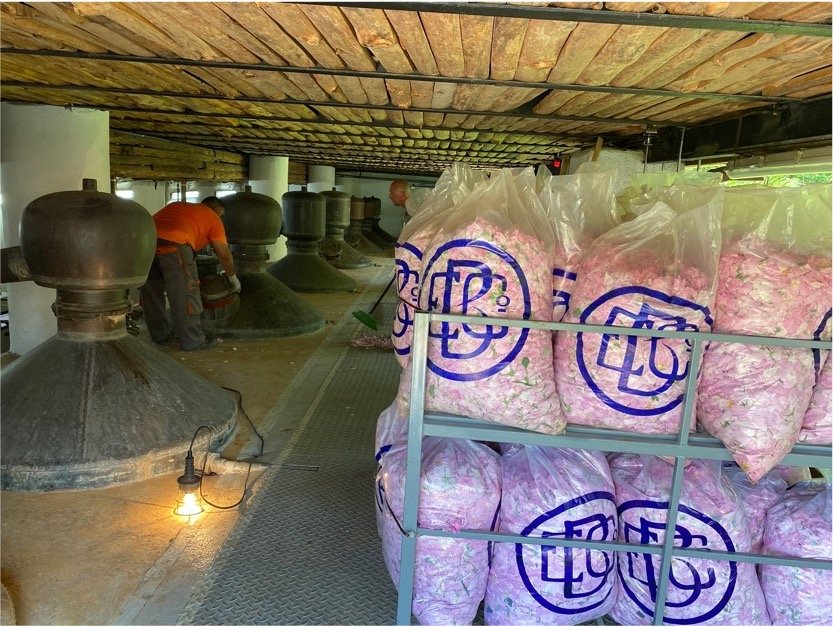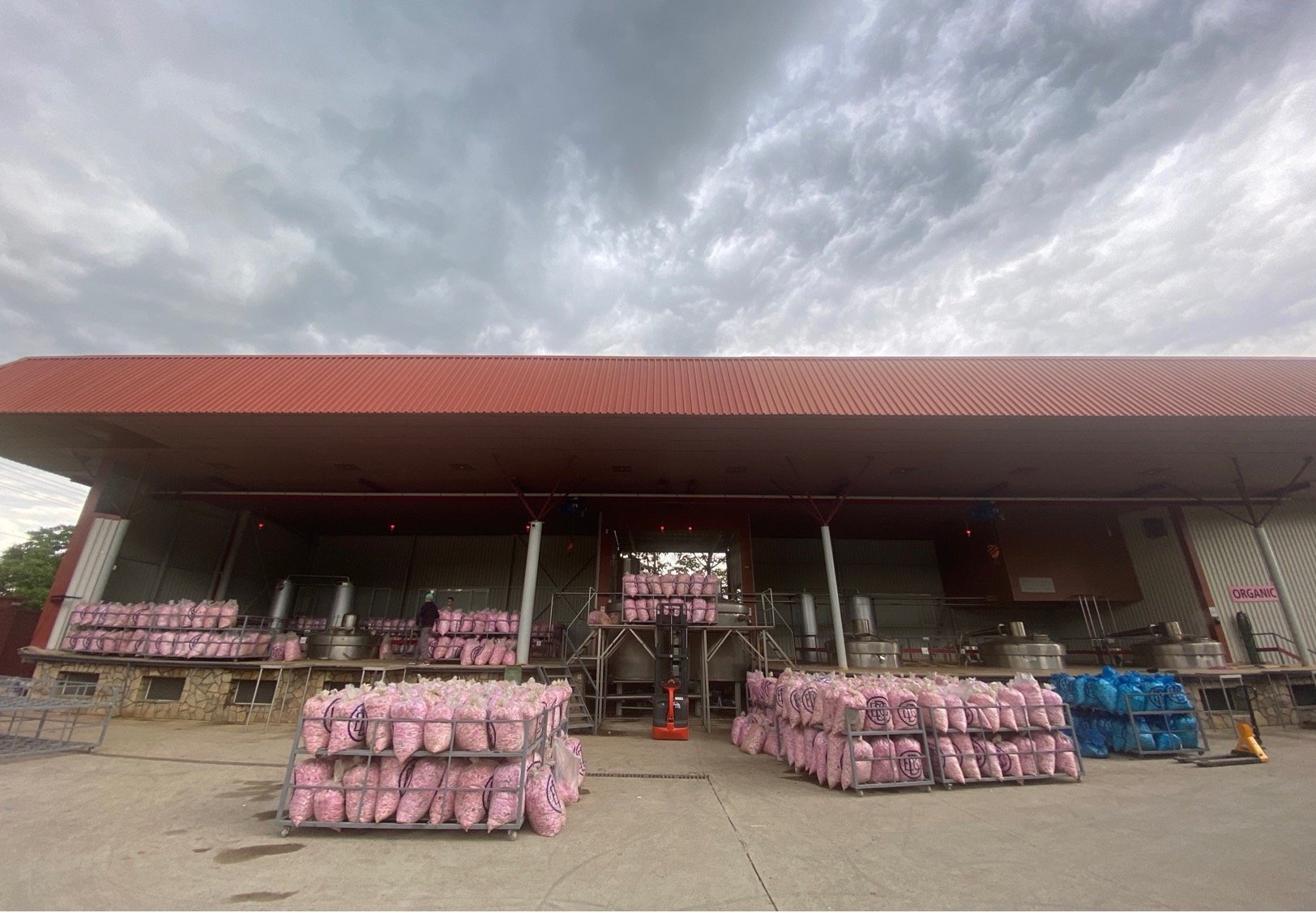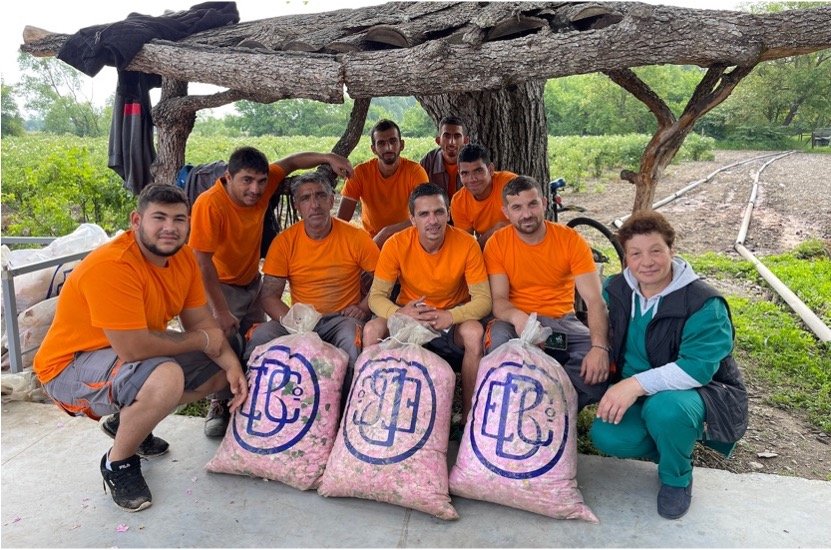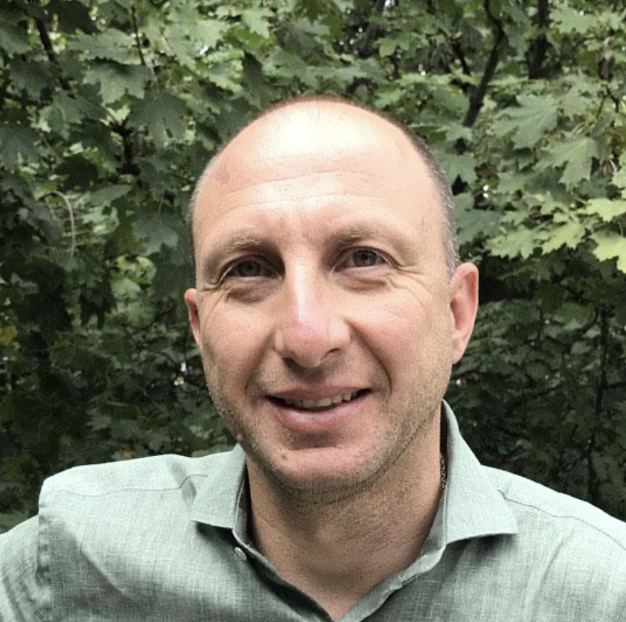Filip Lissicharov, CEO and Owner, Enio Bonchev Production
For those who don’t know you, can you tell us a little about your family-run company.
We are a Bulgarian family company, originally started by my great- grandfather, Enio Bonchev, back in 1909. We are growers, farmers and essential oil producers of the two most traditional oil-bearing crops for our country - rose and lavender.
How do you build strong and lasting relationships with farmers?
Farmers are humans. We have a network of approximately 70 farmers, most of whom we have been partnering with for over 15 years. You build relationships the same way we do in our lives with friends, relatives, colleagues. We take the time to establish trust. Then, you need to be fair and supportive in the difficult moments, such as years of over-production or COVID. Listen. Challenge the tradition, be flexible. Show respect. Sometimes sacrifice your immediate profit, working towards making sure people receive a fair, living income. Think long-term and act ‘out of the box.’
Producing lavender and Damascena rose is very labor-intensive. You rely on over 200 pickers in the harvest season, most of them from vulnerable groups (e.g. ethnic minorities, etc), hand-picking the flowers. Is Enio Bonchev involved in social initiatives to contribute to the well- being and livelihoods of these persons?
Yes, and our first step is to identify the needs of the most vulnerable groups, the ethnic minorities, the people who hand-pick the roses and without whom there will be no iconic perfumes. This may sound easy but in fact it is a very challenging task because you need to find the right people, with local language ability, to act as mediators and who they can trust. Then, once you do a proper assessment of the true needs of the local communities, you can build a meaningful project.
As of today, we are working on two projects - one on ‘PEOPLE,’ focused on the personal development of children and young people in communities, aiming to improve their social inclusion, fostering a better life through non-formal education approaches. I may say this is a lifetime project or rather, a lifetime process, and a very long journey. We also have started another project on ‘BIODIVERSITY’ that is focused on regenerative agriculture.
Your company joined UEBT in 2022. What made you choose to engage with UEBT and what are some of the highlights you achieved or are hoping to achieve in the coming years with UEBT support?
Back in 2020 we had a requirement from a customer for using a sustainably standard and were given a list of different organizations to choose from. I thought “oh no, more paperwork, another long online questionnaire we have to fill out.” Then, UEBT struck me with its unique model and practical application. It naturally made sense for me to connect as I recognized a very similar mind-set within UEBT to my own company.
In the following years, working with UEBT, my eyes opened, and I started to see issues in the supply chain which had not been identified or that had been neglected by all, including us, for many years. Naturally, our passionate work and follow up actions helped elevate the relationship with pickers and farmers, staff and customers to a different level.
Today, UEBT is an organisation recognised internationally on ethical sourcing. With its in-depth approach to the problems, and its experience and qualified people, the organization is the tool helping us make real changes in our industry and society.
At the UEBT conference last fall, you sent a message to international processing companies and brands asking them to take more action in supply chains. What are your expectations, as a local producer, towards these companies?
The business model has already changed. Social and environmental considerations have become an essential part of consumer decisions. This is why in February of 2022 the EU Commission adopted a proposal for a Directive on Corporate Sustainability Due Diligence, as part of the Green Deal, to protect the consumer. The aim of this Directive is to foster sustainable and responsible corporate behaviour on human rights and environment.
Everyone today wants to know how the product is produced. Is there child or forced labor involved in the process, are people treated fair, is nature preserved? And it is the responsibility of our customers to oblige, they must duly report to the respective authorities. This means that they must get involved at field level, truly understand the problems and engage in finding workable solutions to protect the communities where the raw materials are harvested. They need to support the producer!
What do I expect when I say that we need support? Many times, I get the feeling that some of our customers, the ‘big guys,’ think that by buying our product at market price, this is sufficient to give us ‘full support’ and that this is enough. But how are we to solve overnight sustainability issues in the supply chain which have not been addressed by our governments for centuries?!
We, the local producers, have passion, on-ground expertise and are willing to do the work. I expect from our customers the following four things:
A long-term strategy with direct commitments through long-term contracts.
Serious financial support on our meaningful projects.
Acknowledgement of our work on sustainability by paying us fair prices.
To treat us as partners.
The essential oils have a negligible financial impact on the cost of the final product. At the same time, they are the key to success. I expect our customers’ sustainability team to have a voice and be part of the purchasing team, and our buyers to have financial incentives based on sustainability, not cost saving.
I expect the owners, boards and CEOs of the top international processors and the Brands to understand that sustainability is a process, not a stamp. I expect them to support and empower their sustainability teams. I expect that when they talk about supporting the producers, that they put their money where their mouth is.
What are the biggest challenges you face today? Where do you aim to be tomorrow?
We, the producers, are on our own. We are the architects and visionaries while at the same time being preachers, teachers, parents, mediators, interpreters, administrative workers, and control points. This makes our work very intense while feeling very lonely. It sometimes is discouraging as you passionately give everything you can but cannot see immediate results.
I dream to bring value, leave a meaningful mark along the way.
Filip Lissicharov, CEO and Owner Enio Bonchev Production



